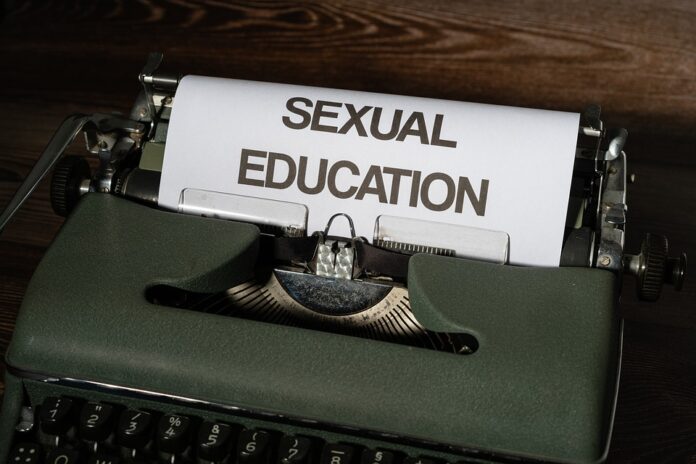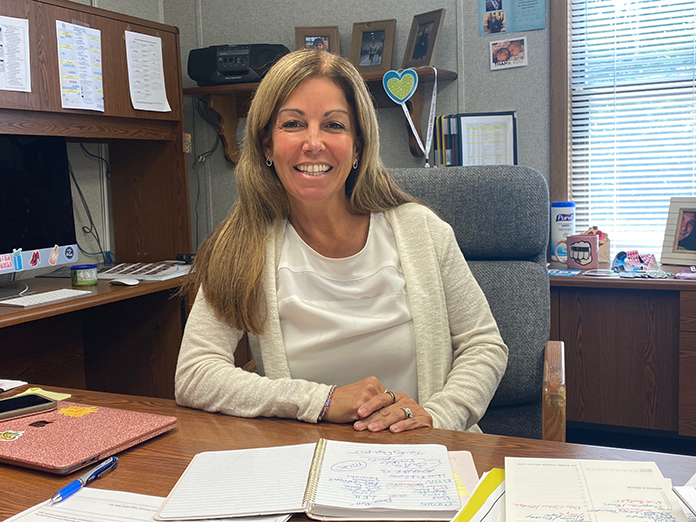
LITTLE EGG HARBOR – While most school districts have decided how they intend to deal with New Jersey’s Comprehensive Health and Physical Education standards, Little Egg Harbor remains the exception.
It’s not as if school administrators have been lax in putting together a proposed curriculum. A preview of how the district plans to handle the controversial materials is on the district’s website. The presentation dated August 24, 2022, bears the name of Alisa Palazzi, Supervisor of Curriculum and Instruction.
“We are being told by the state what we have to do,” shared Superintendent of Schools, Dr. Melissa McCooley. “Our job is to work together to make sure it’s done in a conservative way, and that it’s not over the top. That’s what we did with our teachers.”
Stafford Schools has decided to assign some of the lessons to be taught at home. However, McCooley said that the state standards do not propose that home assignments will suffice. The district relies on certified teachers to present the curriculum.
Little Egg Harbor school district administrators have come up with a proposal that teaches the curriculum for a total of two hours of instruction over a two-week period in May.
Non-compliance could come in the form of reduced state aid to the district or even the possibility of a fine. Either of the two would not only negatively impact taxpayers but could also hurt services available to students if money became a problem.
Little Egg Harbor’s school district is currently considered a high-performing district under NJQSAC (New Jersey Quality Single Accountability Continuum) standards – a designation McCooley believes is important. Failure to comply with the state’s curriculum directives might also hurt that standing.
School board meetings held on the issue for several months have been contentious with board members holding firm to their opinions. The school board’s long term attorney William S. Donio submitted his resignation in October. Although no one has confirmed the reason Donio decided to resign, board members publicly disagreed with his recommendations.
The district has invited families to informational sessions to learn more about the curriculum. Only a few parents attended and made a decision based on what they learned.
“We have 14 students that have requested to opt out of those particular standards,” said McCooley. “That’s one percent of our student population.”
Among other things, Board of Education President Dr. Christine S. Snyder appeared to take particular exception for parents needing to “OPT OUT” of the curriculum, rather than asking them to “OPT IN.”
“Years ago, and I’m old, there was a video,” said Snyder. “You had to sign a paper for your child to watch the video. If you didn’t sign it, your kid was not allowed to watch it.”
McCooley reiterated her position that the state has set up the requirements for the opt-out letter. Snyder produced forms from Barnegat and Toms River, saying both districts had opt-in/opt-out forms sent out in August. Barnegat has since amended its policy to follow the state’s directive to only include an opt-out option.
Board member Laura Erber read from notes she said were entitled “Meeting to Discuss Extreme Vulgar and Inappropriate Material and the New Proposed Curriculum” dated October 9th. Erber said that not one parent who was at the meeting was in favor of the new curriculum and related standards.
“The parents did not want sexual reproduction taught in grades K-2,” said Erber. “Parents stated they were against teaching about trangenderism and sexual orientation. They did not want parenting or pregnancy taught in grades 3-5.”
McCooley pointed out the small attendance of the meeting from a district of 1,700 students, and also disagreed with Erber’s characterization of the curriculum. The district has chosen to take out all controversial materials listed in parentheses from the state. Much of what remains in the proposed curriculum has been around for twenty years according to the superintendent.
Erber said that while the committee intends “no offense” to the LGBTQ community, they are committed to protecting children from what she considered age inappropriate and medically inaccurate subject matter.
The Board’s attorney explained that rejecting the standards and instructional materials could create problems. When Donio attempted to discuss the possible ramifications of failing to pass the curriculum, Snyder cut him off.
“You have mentioned that this delineates some consequences,” said Snyder. “This far, no board has suffered – so you don’t need to go on and on.”
Several members of the public have addressed the school board and said they have no issue with the way the district intends to address the curriculum. Some said the opt-out option was an appropriate one.
“I know that the teachers and administrators who were part of the committee to work on this particular health and PE curriculum did so with care and sensitivity,” said Gina Frasca, a Pinelands Regional School District administrator. “Taking in all of the concerns of the families and the community…curriculum maps were developed which gave families a transparent guide and clear order to know exactly when specific standards are being taught.”
Frasca challenged Snyder to provide insight into how she thought the science contradicted the curriculum.
Since Donio’s resignation, the Board has hired Andrew W. Li of the Comegno Law Group to represent the school district. It remains to be seen if the change in legal counsel will have any impact on Little Egg Harbor’s decisions regarding the controversial curriculum.
Board members mentioned in this article were contacted for personal comment and did not reply to email requests.

New Sex Ed Standards
Standards undergo a revision process every five years and include a series of public hearings throughout the state. The new guidelines were actually adopted in June of 2020.
The Comprehensive Health and Physical Education guidelines encompass a great deal more than sex and gender. It is 66 pages. There are entire pages on fitness, and just a few sentences on gender identity, but that is what some parents are concerned about. Other topics include addiction, nutrition, and resolving conflicts.
Parents have expressed concerns that the state’s rules are causing students to be “indoctrinated” into lifestyles of which the parents wouldn’t approve, or they say the parents should be the ones having these conversations with the children.
Whenever parents bring up these points, school administrators throughout Ocean County have continually said that while the state created the guidelines, each district was able to craft their own lessons. There is still an element of home rule.
According to the state document, “Today’s students are continually bombarded with physical, mental, and social influences that affect not only learning in school, but also the lifelong health of the citizens that schools are preparing for graduation. To that end, the New Jersey Student Learning Standards – Comprehensive Health and Physical Education (NJSLS-CHPE) were revised to address the need for students to gain knowledge and skills in caring for themselves, interact effectively with others, and analyze the impact of choices and consequences.”
One philosophy of education is that teachers shouldn’t just teach facts, but should create lifetime learners – something that lasts after graduation. One of the goals here is to create healthy exercise and nutrition habits for the rest of their lives.
There is language about “health literacy,” and that if someone doesn’t know anything about health issues, then they won’t know where to turn if something is wrong. They might not even know if something is wrong. Thus, there are topics for older kids about consent, sexting, and sexual assault.
The lessons are split across age levels. The youngest is “by the end of 2nd grade.” The other steps are “end of 5th,” “end of 8th,” and “end of 12th.”
For example, the core idea for sexual health by the end of 2nd grade is “Every individual has unique skills and qualities, which can include the activities they enjoy such as how they may dress, their mannerisms, things they like to do.” By 5th grade, that has evolved into “All individuals should feel welcome and included regardless of their gender, gender expression, or sexual orientation.” The points under that, for end of 5th grade, are: “Describe gender-role stereotypes and their potential impact on self and others; Differentiate between sexual orientation and gender identity; Demonstrate ways to promote dignity and respect for all people (e.g. sexual orientation, gender identity and expression, race, ethnicity, socio-economic status, differing ability, immigration status, family configuration).”
One point of contention for some parents is that by the end of 8th grade, one of the guidelines is “Define vaginal, oral, and anal sex.”
The state’s guidance is based on best practices from throughout the nation. Educators have said that creating a place where schools welcome everyone regardless of gender identity will reduce suicide, drug abuse, and other harmful actions of teens who feel they don’t belong. In this case, it’s literally life or death for kids going through tough times.
Children are being asked to “respect and accept differences of an individual’s race, religion, gender identity, gender expression, ethnicity, disability, socioeconomic background, and perspectives of health-related decisions.”
The state requires that schools include the contributions of African Americans, people with disabilities, as well as lesbian, gay, bisexual, and transgender people “in an appropriate place.”
While politically-motivated media reports have targeted model lesson plans prepared by third parties, these were often extreme examples. The State of New Jersey does not endorse any of them.
The state’s guidelines can be found here:nj.gov/education/cccs/2020/2020%20NJSLS-CHPE.pdf






